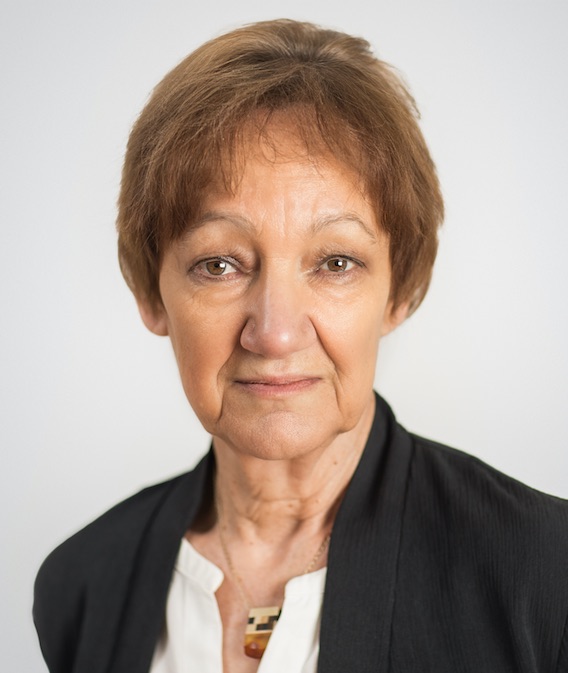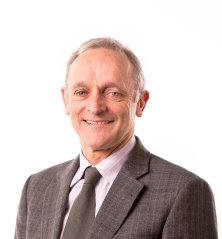Speakers
Keynote speakers

Diana Laurillard
Professor of Learning with Digital Technologies, UCL Knowledge Lab
New opportunities for higher education with blended and online learning designs
The pandemic has forced many teachers into reconceptualising their teaching as blended or even wholly online. In many cases this has opened up a new awareness of opportunities for thinking through how a mix of conventional and digital methods could be optimized to create new opportunities for teaching and learning, and even for new kinds of degree programmes, whether wholly online or hybrid. The talk will explore some of these opportunities via reflections on ways of supporting teachers in the process of rethinking their teaching, and of modelling new types of course, all with the aim of optimizing the student learning experience, whatever their mode of study.
Professor Diana Laurillard was formerly Head of the e-Learning Strategy Unit at Department for Education and Skills (2002-2005) and Pro-Vice Chancellor for learning technologies at the Open University (1995-2002). She researches MOOCs for professional education in challenging contexts, learning design, and digital games for dyscalculia. Professor Laurillard's current projects include: The Transformational Potential of MOOCs in the Centre for Global HE at UCL-IOE and the project on Future Education in the RELIEF Centre at UCL-IGP. Her most recent book is Teaching as a Design Science (Routledge). In 2016 she was awarded an Honorary Life Membership of the Association for Learning Technology, and in June 2020 she won a Lifetime Contribution Award from the E-Assessment Association.

Richard James
Deputy Vice-Chancellor (Academic) and Professor of Higher Education, The University of Melbourne
Crystal-ball gazing: Teaching and learning in the higher education sector and the University of Melbourne post-COVID-19
The Australian higher education sector is in a holding pattern, of sorts, as leaders imagine their institutional trajectories for rising up through a COVID-normal world to a post-COVID world (should the latter be possible). The pandemic has been disruptive to the ‘’accepted wisdom” in higher education thinking in so many ways. These include, among other things, the character of international student markets, student expectations and how these might be met, the modalities for teaching, learning and assessment, and student recruitment and admissions. Even the annual academic calendar is up for rethinking. Clearly there’s no returning to ‘normal’. And if the global pandemic wasn’t enough to deal with, the Australian government’s Job-Ready Graduates Package and other government policies have introduced many new complexities for institutional strategy and planning. There are new opportunities and we’re seeing ‘first movers’.
This presentation will focus on the possible futures for teaching and learning. What will the Australian HE sector look like? How might the student experience change? How will the University of Melbourne be positioned in a dynamic tertiary environment? What steps might we take to prepare for new approaches to teaching and learning?
Professor Richard James holds a chair in the field of higher education and is a researcher and commentator on higher education policy in Australia. He is a Fellow of the Australian Council for Educational Leaders. Professor James was a member of the inaugural Australian Higher Education Standards Panel (HESP) that prepared the standards framework used by the Tertiary Education Quality and Standards Agency for regulatory purposes. He is a member of the Quality Indicators for Learning and Teaching (QILT) Advisory Group that guides performance measurement for Australian universities. He has wide-ranging research interests in higher education that centre on the quality of the student experience. His research program spans access and equity, the transition to university, student finances, student engagement, quality assurance and academic standards. He has published widely on the effects of social class on higher education aspirations and participation.
Presenters
Dr Stuart Barber
Dr Stuart Barber is a senior lecturer in the Melbourne Veterinary School. He currently coordinates 5 subjects in the first two years of the Doctor of Veterinary Medicine degree and teaches into a few others. He researches livestock health, production and welfare and also integration of virtual reality in student teaching and learning along with other teaching based research.
Professor Katy Barnett
Katy Barnett is a Professor at Melbourne Law School. She has published widely on Remedies law, Trusts law and Contract law. She also researches in comparative law, animal law, law and economics and legal history, and is currently writing a book on the history of animals and the law with Professor Jeremy Gans. In 2016 she was the recipient of the Barbara Falk Award for Excellence in Teaching.
Associate Professor Gavin Buskes
Gavin is an Associate Professor and Director of Teaching for the Department of Electrical and Electronic Engineering. He is also the Assistant Dean (Teaching and Learning) for the Melbourne School of Engineering. He has coordinated and taught large first-year engineering subjects for a number of years, in addition to teaching core undergraduate Electrical Engineering and masters-level subjects, and has won numerous teaching awards including the Melbourne School of Engineering Award for Teaching Excellence, the Edward Brown Award for Teaching Excellence, a U21 Fellowship and the Gem Scott Teaching Fellowship. He has authored papers on flipped classrooms, measuring student engagement in large classes and student idea generation. He is a keen adopter of technology to drive student learning, both in and out of the classroom to improve engagement, deliver more immediate feedback and lift student academic performance.
Dr Michal Carrington
Michal Carrington is a Senior Lecturer in Marketing at the University of Melbourne, and is an expert in consumer and shopper behaviour, omni-channel retail, consumer culture and consumer/marketing ethics. Dr Carrington is currently part of an international research team spanning the UK, US and Australia researching the consumption of products of modern slavery. This research is in collaboration with a range of government and industry stakeholders, such as the British Retail Consortium, UK Home Office, UK Government, and UK Independent Anti-Slavery Commissioner. Michal publishes widely in top-tier international marketing and business journals, as well as media outlets such as newspapers and The Conversation. Michal has teaching expertise across marketing, retail and consumer, and teaches into undergraduate, masters and executive education programs. Michal holds a BEng (Hons) in Mechanical Engineering from the University of Melbourne, and a PhD in Marketing also from the University of Melbourne. Prior to entering academia, Michal spent a decade working for Unilever in Australia and the UK.
Dr Jen Martin
Dr Jen Martin spent many years working as a field ecologist until she decided the most useful thing she could contribute as a scientist was to teach other scientists how to be effective and engaging communicators. Jen founded and leads the University of Melbourne's acclaimed Science Communication Teaching Program. She also practises what she preaches: for 15 years she’s been talking about science each week on 3RRR radio, she writes for a variety of publications and MCs events. Jen was named the 2019 Unsung Hero of Australian Science Communication and received the 2020 University of Melbourne David White Award for Teaching Excellence.
Dr Charles Sevigny
Dr Charles Sevigny is a Senior Lecturer in the Department of Physiology and the Director of Digital Learning for the School of Biomedical Sciences at the University of Melbourne. After completing his PhD in functional neuroanatomy in the Department of Physiology at UoM in 2012, he became a teaching specialist with a focus on technology-enabled active and blended learning. In 2018 he launched the Virtual Reality Learning studio, developing VR applications for Biomedical Science education and deploying them to cohorts of over 1200 students. He now oversees the Digital Learning Hub in the School of Biomedical Sciences which uses technology to enhance learning and collaboration of both students and academics, with a focus on enabling digital fluency and empowering students to be co-creators and contributors to their learning experience and the global community. In 2017, Charles won the University’s David White Award for Teaching Excellence for enabling individual and collaborative learning in large cohorts.
Associate Professor Kate Tregloan
Kate Tregloan is Assistant Dean (Teaching Quality) in the Faculty of Architecture, Building and Planning, and Director of the Built Environments Learning + Teaching (BEL+T) group. She focuses on creative education, and on evaluation for learning, designing, and learning to design. She is interested in contributions to interdisciplinary impact, the built environment, and addressing community need.